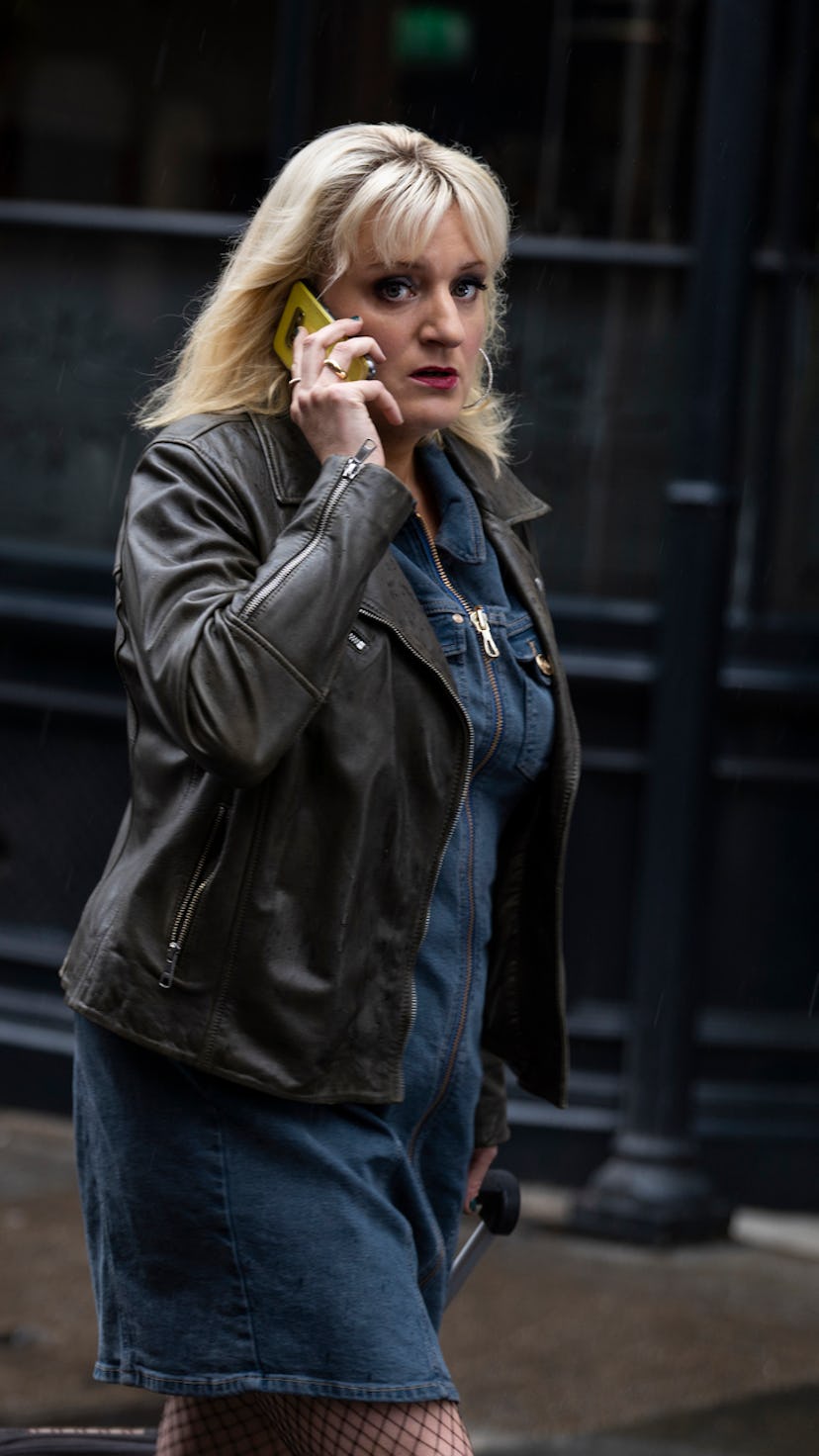Celebrity
Daisy May Cooper Doesn’t Give A F*ck
The This Country star on her new series, Rain Dogs, and finding the light in the dark.

“Is it alright? Am I alright?” Daisy May Cooper asks. The comedian has just found out that I’ve watched her new series, Rain Dogs. Cooper won’t be watching it herself; at this point, she actively avoids looking back on her work. “It actually gives me anxiety, you just start a downward spiral,” she explains. “Why did I do that? Why did I say that? But we can't go back in time. We just have to [move on] 'cause otherwise we'll kill ourselves.”
“Kill ourselves.” It’s a hyperbole Cooper uses frequently and one that’s slotted into all manner of discussions: motherhood, social mobility, the BRITs. (A joke she made about the Sugababes at the awards was deemed a little on the nose for some. “I had the horrors so much the next day, that didn’t come across the way I wanted it to,” she tells me. “They were actually doing their lip liner and they were lovely. I honestly thought that after I might have to kill myself... It came across so bad you know, but I couldn't give a f*ck 'cause it came from a good place.”) Her delivery remains the same no matter the subject; unblinking, and laced with a nonchalance held only to smile. Finding light in the dark is part of what Cooper does best: This Country, Cooper’s TV debut written with her brother Charlie, was a BAFTA-winning mockumentary chronicling poverty in semi-rural Britain. It’s also part of what drew her to Rain Dogs in the first place.
“Rain Dogs is a bit depressing,” Cooper says with a smile. Written by Skint Estate author Cash Carraway, the show follows a single mum and her daughter living on the breadline in inner-city England. Costello, played by Cooper, jumps through hoops to raise daughter Iris (Fleur Tashjian) with as much normalcy as possible. She’s helped along by her best friends; Selby, a gay man with a propensity for violence, propped up by generational wealth, and Gloria, Iris’ godmother and Costello’s most grounding force.
A parent herself, Cooper isn’t afraid to address the realities of motherhood. “It's the best-worst thing that can ever happen to you,” she says leaning forward. “I love my children unconditionally. I will put them before everything. But there are times that you f*cking resent them.” Cooper pauses for a beat: “And then you feel guilt for feeling that.”
At its core, Rain Dogs is an honest, heartwarming, and inherently kind depiction of the choices people make when faced with a broken system. “[Costello] can be a bit unlikeable as a protagonist, but that makes you end up really loving her because she does make mistakes,” Cooper says. Imperfect is how she prefers her characters: “I actually don't really like characters that are too likable. I like to see flawed human beings, because that's what I am.”
Below, Cooper shares her thoughts on the sex industry, drugs, and the true power of humour.
On poverty in the UK
“You can see why people get addicted to drugs, it’s just 'cause it's like ‘God I need some sort of escapism.’ It's what pisses me off about people that give homeless people sandwiches. I will always give them cash 'cause I think if you wanna get f*cked out of your head to forget where you are right now, you are totally entitled to do that.”
On employment and the sex industry
“[After drama school] I went for a job as a pot washer in an Indian restaurant. I missed the job because 30 people went up for it, [so] I went to audition to be a stripper because you know that there's always gonna be jobs in the sex industry for women: in Rain Dogs, Costello goes and works at a peep show. You didn't need qualifications, it's gonna be well paid, and it's f*cking bleak. I can't get a pot washing job, but I can get my tits out in a club with men that don't know how talented I am, or what my morals are, or what I want to achieve.”
On laughing at the dark times
“I think that's what we do, isn't it? As human beings, we always try and fight against [darkness], 'cause otherwise we'd just all kill ourselves. Especially with poverty, the only thing you have left is humour. I think that's why there's so many working-class standups. It is a real human defense mechanism.”
On doing The Masked Singer
“I did it for [my daughter] Pip who didn't give a f*ck. She was so embarrassed. Just goes to show it doesn't matter what you do for your kids. It will never be right, it will never be good enough. I didn't think for a minute it would embarrass her. I thought she'd love it.”
On collaborating with her dad
“He thinks he's so f*cking funny and he overdoes it all the time. Honestly, it gives me the ick so bad. Don't tell him that.”
On hosting an American awards show
“Oh abso-f*cking-lutely, 1000%.”
This interview has been edited and condensed for clarity.
This article was originally published on